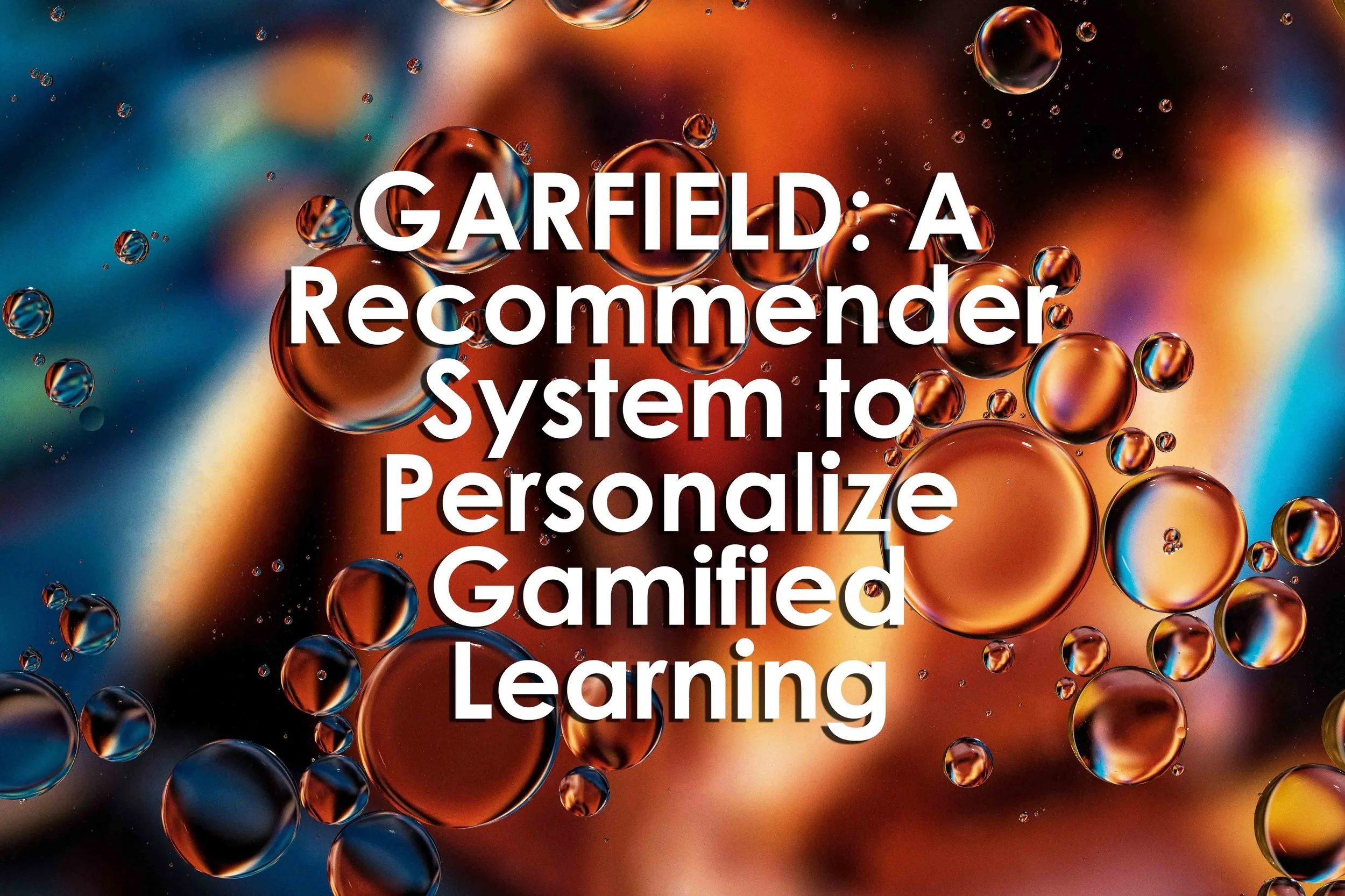GARFIELD: A Recommender System to Personalize Gamified Learning
GARFIELD: A Recommender System to Personalize Gamified Learning
GARFIELD: A Recommender System to Personalize Gamified Learning
By Luiz Rodrigues, Armando Toda, Filipe Pereira, Paula T. Palomino, Ana C. T. Klock, Marcela Pessoa, David Oliveira, Isabela Gasparini, Elaine H. Teixeira, Alexandra I. Cristea and Seiji Isotani
Abstract
“Students often lack intrinsic motivation to engage with educational activities. While gamification has the potential to mitigate that issue, it does not always work, possibly due to poor gamification design. Researchers have developed strategies to improve gamification designs through personalization. However, most of those are based on theoretical understanding of game elements and their impact on students, instead of considering real interaction data. Thus, we developed an approach to personalize gamification designs upon data from real students’ experiences with a learning environment. We followed the CRISP-DM methodology to develop personalization strategies by analyzing self-reports from 221 Brazilian students who used one out of our five gamification designs. Then, we regressed from such data to obtain recommendations of which design is the most suitable to achieve a desired motivation level, leading to our interactive recommender system: GARFIELD. Its recommendations showed a moderate performance compared to the ground truth, demonstrating our approach’s potential. To the best of our knowledge, GARFIELD is the first model to guide practitioners and instructors on how to personalize gamification based on empirical data.”
Reference
Rodrigues, L., Toda, A., Pereira, F., Palomino, P. T., Klock, A. C., Pessoa, M., . . . Isotani, S. (2022). Garfield: A recommender system to & ;personalize gamified learning. Lecture Notes in Computer Science, 666-672. doi:10.1007/978-3-031-11644-5_65 https://link.springer.com/chapter/10.1007/978-3-031-11644-5_65
Keyword
Tailored gamification, data-driven, education, e-Learning, research

